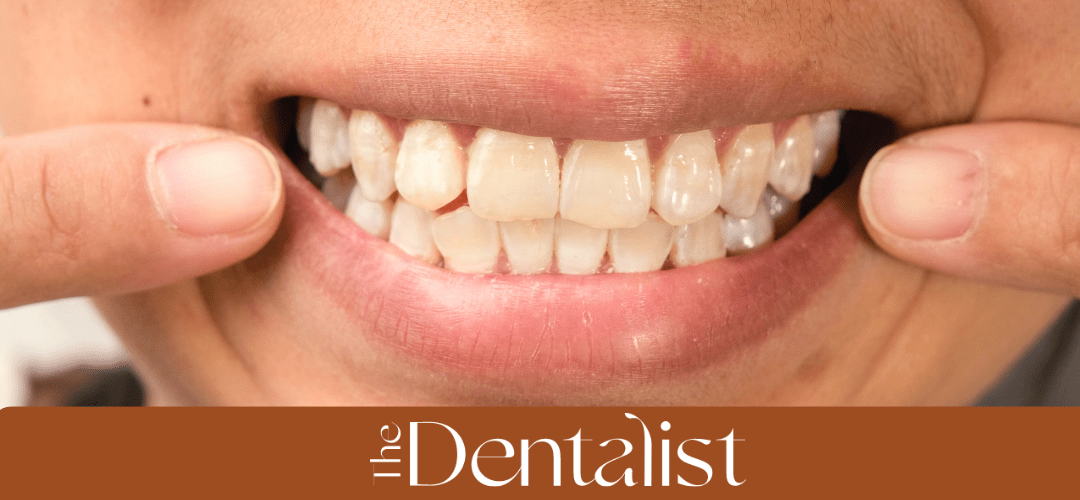Introduction
In recent years, vaping has gained immense popularity as a seemingly less harmful alternative to traditional smoking. The enticing flavours, sleek devices, and perceived reduced health risks have contributed to its widespread adoption among both adults and youth. However, amidst the allure of vaping, concerns have emerged about its potential impact on oral health, specifically the well-being of our teeth and gums. In this blog post, we’ll analyse the world of vaping and its effects on dental health, separating fact from fiction and shedding light on an often-overlooked aspect of this modern trend.
What is Vaping?
Vaping involves inhaling aerosolized substances produced by heating e-liquids. These e-liquids typically contain a mixture of nicotine, flavourings, and other chemicals. The aerosol produced by vaping is often mistaken for harmless water vapour, but in reality, it consists of fine particles that can be inhaled deeply into the lungs and mouth.
The Rise of Vaping
Vaping has swiftly become a cultural phenomenon, with its modern allure captivating individuals seeking a smoke-free alternative. As e-cigarette devices have flooded the market, their advertised reduced health risks have led many to believe that vaping poses minimal threats to overall well-being. However, as we explore the potential effects of vaping on dental health, it becomes clear that there are aspects of this trend that need closer examination.
What’s in The Vape E-liquid?
Vape e-liquids encompass a variety of ingredients, each with its potential impact on oral health. Propylene glycol and vegetable glycerin, commonly used as bases for e-liquids, can contribute to dry mouth, a condition that has been linked to an increased risk of cavities and gum disease.
Vaping and Age Restrictions
Understanding vaping regulations and age restrictions is crucial, particularly for young people. Many countries have set age limits for buying vaping products to prevent youth access and protect their developing teeth and gums. These measures aim to discourage underage vaping and its potential harm to oral health. By enforcing these regulations, governments prioritise the well-being of their youth and promote responsible choices for a healthier future.
In the UK, for example, the rule is that children under the age of 18 cannot legally buy e-cigarettes.
What Dental Problems Does Vaping Cause?
There are many conditions associated with vaping. Let’s explore some of them:
1. Dry Mouth
Dry mouth, also known as xerostomia, is a prevalent concern among vapers. The act of vaping, coupled with the chemicals present in e-liquids, can disrupt the production of saliva. Saliva plays a crucial role in maintaining oral health by neutralising acids, washing away food particles, and aiding in remineralisation. A decrease in saliva production can create an environment conducive to bacterial growth and enamel erosion.
2. Impact on Tooth Enamel
Tooth enamel, the protective outer layer of teeth, is susceptible to erosion when exposed to acidic substances. Some vape e-liquids contain acids that can erode enamel over time, leading to tooth sensitivity, discolouration, and an increased risk of cavities.
3. Gum Irritation and Receding Gum
Vaping’s effects on gum health should not be underestimated. The inhalation of aerosolized particles can cause irritation to gum tissues, potentially leading to inflammation and gum recession. Receding gums expose the tooth’s sensitive roots, making them more vulnerable to decay and sensitivity.
4. Microbiome Disruption
The oral microbiome, a complex ecosystem of bacteria in the mouth, plays a pivotal role in maintaining oral health. Vaping can disrupt this delicate balance, potentially allowing harmful bacteria to thrive. This disruption may contribute to bad breath, cavities, and gum disease.
Vaping vs Traditional Smoking
While vaping is frequently touted as a less harmful substitute for conventional smoking, it’s essential to recognise that it brings forth a distinct set of potential risks. The allure of a safer option should not overshadow the fact that both vaping and smoking can significantly compromise dental well-being. Researchers are actively engaged in unravelling the complex web of potential long-term repercussions that vaping might entail. It’s a reminder that even though vaping is often presented as a modern solution, its impact on our health, particularly oral health, remains a subject of ongoing exploration and study.
How to Mitigate Vaping-Related Dental Concerns
If you’re a vaper concerned about your dental health, there are steps you can take to minimise potential risks. Staying hydrated, practising meticulous oral hygiene, and scheduling regular dental check-ups are crucial to maintaining a healthy smile.
- Hydrate yourself – Drinking water is one of the simplest yet most effective ways to support dental health. Hydration helps combat dry mouth and encourages saliva production, aiding in the natural defence against oral bacteria.
- Seek professional dental care – Regular visits to the dentist are vital, especially for individuals who vape. Dental professionals can monitor your oral health, identify early signs of issues, and provide personalised recommendations to mitigate vaping-related concerns. You can book a free consultation with The Dentalist now.
- Consider stopping vaping – Consider discontinuing vaping entirely. Explore methods to quit both smoking and vaping.
Conclusion
In the pursuit of a smoke-free alternative, it’s crucial to recognise that vaping is not without its potential consequences, particularly concerning dental health. While further research is needed to fully understand the long-term effects, it’s advisable to approach vaping with caution and prioritise maintaining proper oral hygiene practices.
FAQs
While vaping itself may not directly cause cavities, the chemicals in e-liquids and the potential for dry mouth can contribute to cavity formation.
Nicotine-free vaping may reduce some risks associated with nicotine, but other ingredients in e-liquids could still impact oral health.
Staying hydrated, practising good oral hygiene, and scheduling regular dental check-ups can help protect your teeth while vaping.
Yes, gum irritation is a potential concern due to the inhalation of aerosolized particles and the presence of chemicals in e-liquids.


